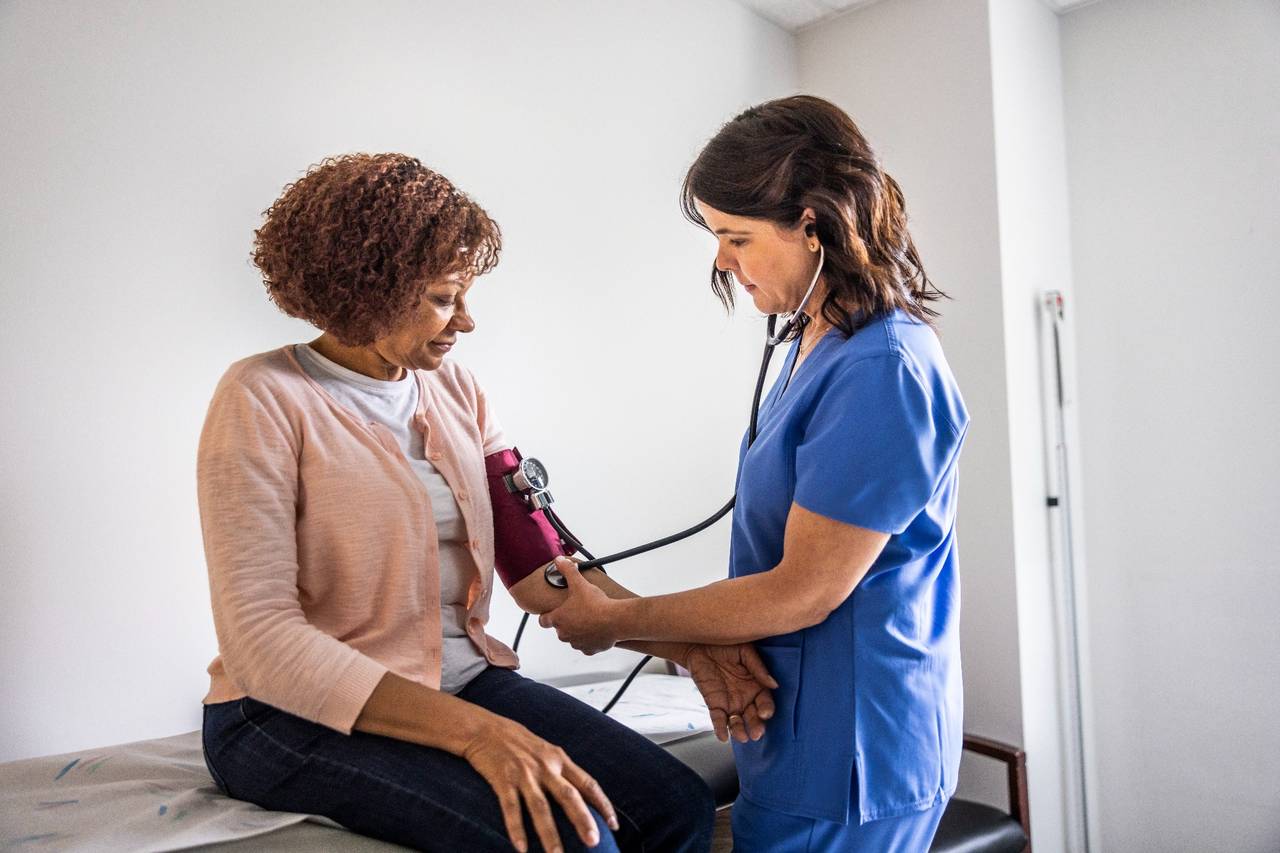12 Essential Health Screenings for Men

Detecting health problems early makes it easier to treat them and can lead to better outcomes. Consequently, men should get certain health screenings regularly. Twelve especially important tests are, in no particular order:
1. Blood pressure.
Elevated blood pressure is the biggest risk for heart disease and can cause other serious health problems. You should have your blood pressure checked regularly. How often depends on whether you have any cardiovascular risk factors. Your doctor can talk with you about the frequency that’s right for you.
2. Blood cholesterol.
Most men should start having their blood cholesterol checked regularly at age 35. If you’re overweight or obese, have a family history of heart attacks, or have diabetes or heart disease, you should begin testing at a younger age and have it done more frequently.
3. Depression.
Depression isn’t “just a state of mind,” it’s a mental health disorder that can be successfully treated. It’s also very common, with an estimated 6 million men affected by it annually. Untreated depression can lead to other problems, like an unhealthy lifestyle that contributes to health issues such as heart disease.
4. Prostate cancer.
Prostate cancer is treatable, especially if caught early. Both a digital rectal examination and a blood test for prostate-specific antigen (PSA) can be used to detect it. Your doctor can advise you on when you should start getting tested for prostate cancer.
5. Testicular cancer.
This rare cancer is typically diagnosed in men who are 20-54 years of age. Your doctor can assess the condition of your testicles in an exam. Doing regular self-exams is also recommended.
6. Obesity.
The body mass index (BMI) is a measure of whether you’re at a healthy weight. It uses a formula that includes your waist circumference, bioelectric impedance (a test that uses a harmless electrical charge to measure body fat percentage), and other factors. Achieving and maintaining a healthy weight reduces your risk of many health issues, including heart disease, diabetes, and certain cancers.
7. Colon cancer.
You should begin colon cancer screening by at least age 50, and earlier if you have a family history of the disease. The best way to screen for colon cancer is a colonoscopy, but other tests are available. Your doctor can advise you on what’s the best testing approach for you based on your health and other factors.
8. Diabetes.
Diabetes is a condition that can affect a variety of systems in the body. If you have high blood pressure (controlled or uncontrolled) or experience frequent urination, persistent thirst, or tingling in your hands and/or feet, you should talk with your doctor. Diabetes screening looks at your average blood sugar level over three months.
9. Skin cancer.
There are several forms of skin cancer, of which melanoma is the most serious. It can spread to other parts of the body and be deadly if not treated. You should examine your skin regularly and consult your doctor if you see any changes in your skin including the appearance of new marks or changes in the size, shape, or color of existing ones.
10. HIV.
If you’re 65 or younger, you should be tested for HIV, regardless of what you perceive to be your risk level. If you’re over 65, your doctor can talk with you about whether testing is appropriate.
11. Hepatitis C.
If you were born between 1945 and 1965, you should be tested for the hepatitis C virus. You should also be tested if you have certain other conditions or requirements, such as needing dialysis for kidney failure. Hepatitis C is the leading cause of liver cancer in the U.S.
12. Abdominal aortic aneurysm.
If you’re between the ages of 65 and 75 and have ever smoked tobacco, you should get a CT (computed tomography) scan, an MRI (magnetic resonance imaging) scan, or ultrasound to check for this condition. A rupture can lead to serious or fatal internal bleeding.
Learn About Important Health Screenings for Men
Screening for serious conditions is one of the best ways for a man to stay healthy. Our primary care doctors can provide details on the tests above and any others you might need. Find a Baptist Health provider today.
Next Steps and Useful Resources:
Get Care Anywhere with Virtual Care
Take a Free Health Risk Assessment
[Podcast] Men’s Health: Deferred Maintenance (Part 1)
How to Boost Testosterone Levels



